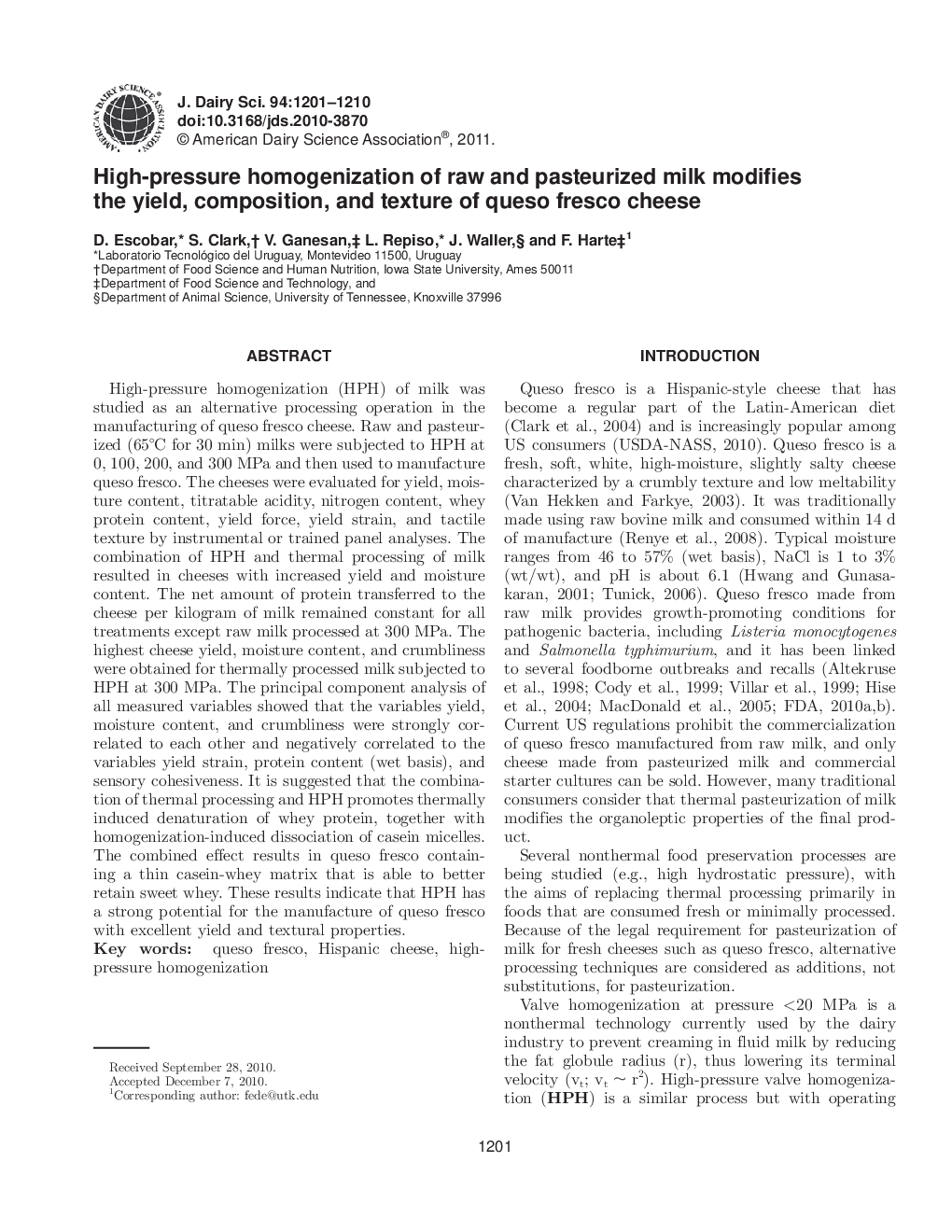| Article ID | Journal | Published Year | Pages | File Type |
|---|---|---|---|---|
| 10981367 | Journal of Dairy Science | 2011 | 10 Pages |
Abstract
High-pressure homogenization (HPH) of milk was studied as an alternative processing operation in the manufacturing of queso fresco cheese. Raw and pasteurized (65°C for 30 min) milks were subjected to HPH at 0, 100, 200, and 300 MPa and then used to manufacture queso fresco. The cheeses were evaluated for yield, moisture content, titratable acidity, nitrogen content, whey protein content, yield force, yield strain, and tactile texture by instrumental or trained panel analyses. The combination of HPH and thermal processing of milk resulted in cheeses with increased yield and moisture content. The net amount of protein transferred to the cheese per kilogram of milk remained constant for all treatments except raw milk processed at 300 MPa. The highest cheese yield, moisture content, and crumbliness were obtained for thermally processed milk subjected to HPH at 300 MPa. The principal component analysis of all measured variables showed that the variables yield, moisture content, and crumbliness were strongly correlated to each other and negatively correlated to the variables yield strain, protein content (wet basis), and sensory cohesiveness. It is suggested that the combination of thermal processing and HPH promotes thermally induced denaturation of whey protein, together with homogenization-induced dissociation of casein micelles. The combined effect results in queso fresco containing a thin casein-whey matrix that is able to better retain sweet whey. These results indicate that HPH has a strong potential for the manufacture of queso fresco with excellent yield and textural properties.
Related Topics
Life Sciences
Agricultural and Biological Sciences
Animal Science and Zoology
Authors
D. Escobar, S. Clark, V. Ganesan, L. Repiso, J. Waller, F. Harte,
